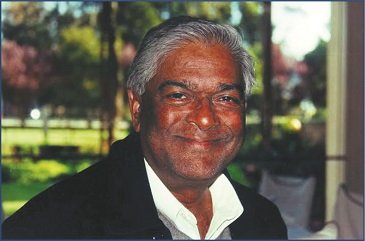BIB 2015: Dr Rajaram on the agricultural needs of the country
February 09, 2015 | Monday | News
BIB 2015: Dr Rajaram on the agricultural needs of the country
Dr Sanjaya Rajaram, World Food Prize Laureate 2014
Agriculture is among the greatest contributors to global warming, emitting more green house gases that all cars, trains and airplanes combined. This is largely from the methane release by the cattle digestive process. Also, when animals' manure is stored or managed in lagoons or holding tanks, Methane (CH4) is produced. Because humans raise these animals for food, the emissions are considered human-related.
"Globally, the Agriculture sector is the primary source of Methane emissions," said Dr Sanjay Rajaram, World Food Prize Laureate 2014, speaking at the Inaugural session of Bangalore India Bio 2015. Speaking on the Food demand in 2050, he said, the world roughly needs crops the size of South America, livestock roughly the size of Africa and we need to avoid further deforestation and grow more on existing farm land. "We have to use resourse efficiently. Conservation agricluture including organic farming may reduce the use of water and chemicals and replacing the inefficient irrigation system with more precisie methods like subsurface drip irrigation has to be the priority," he said.
Speaking on the wheat production in India, Dr Rajaram said that India's wheat production in 2014 is 96 million metric tonnes. "Demand by 2050 would be 160 million tonne," he added. In such a case, possible technology options would be hybrid wheat, biotech/GM, he said. Refering to the recently released ISAAA report, he mentioned that today's world has 27 biotech crop countries. "Seven million farmers in China and India and a record 18 million farmers in 27 countries have plated 175.2 million hectares of biotech crops in 2013, a sustained increase of 5 million hectraes every year." he said, adding further, Maize and Soyabean are currently largest producers of biotech crops in the US.
Urging the Karnataka government, Dr Rajaram said our immediate task would be to alleviate the constratits of agricultural education. "State governments should develop a mechanism to upgrade the curriculam on a regular basis; Strengthen the link between teaching, research and extension; reducing time lapse between research education and extension and enhance entrepreneurship."
The next generation revolution that is in next 10-15 years is that GM crops will extended to Rice, Wheat, Oilseeds, and other major crops not limiting itself to fruits and vegetables, he added.
Concluding his keynote, he urged the India government to invest in GM technology, hybrid technology, introduce innovation in family farming, help farmers to restore soild health, introduce large scale mechanization on small farms and educate future agricultural scientists and academics in India.










